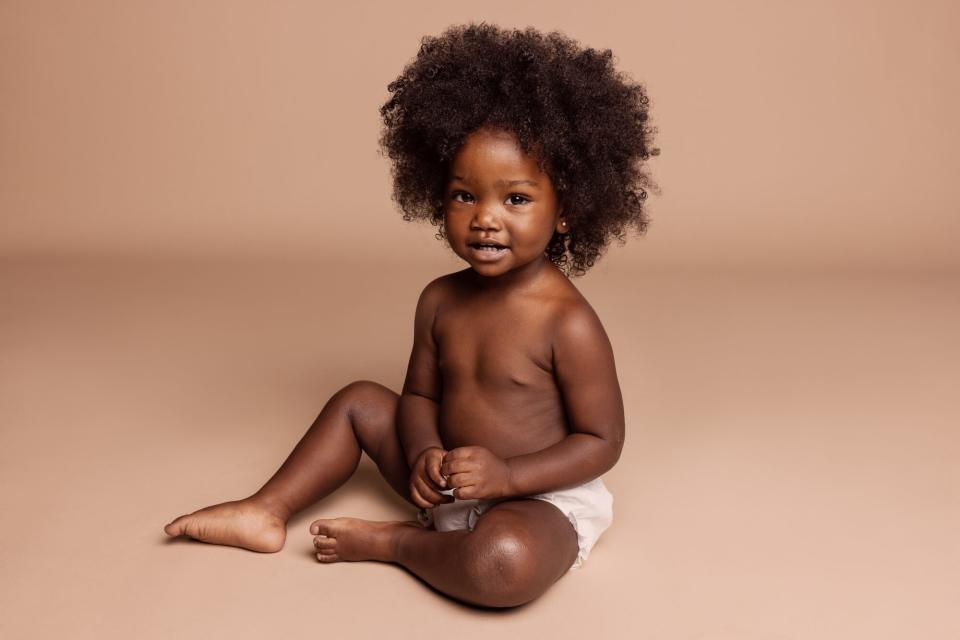Aveeno Baby's New Eczema Equality Campaign Aims to Create More Resources for Parents of Black and Brown Children

CreativeSoul Photography
When a baby has a rash, the first thing many parents do, even before calling their pediatrician, is Google. You want confirmation of what it is and how to treat it, and you want that information fast. But in most cases, if you type "baby rash" into the image search bar, you get page after page of white babies with bright red skin during a flare-up. If your child doesn't look like these babies, finding a rash that looks like theirs won't be easy. The ability to research and see medical ailments in skin tones similar to yours shouldn't be a privilege, but it is. Unfortunately, for parents of darker-skinned babies, it's not easy to find pictures online that resemble their skin. This makes it difficult, sometimes impossible, for parents to quickly find the resources necessary to help their babies, identify whether or not there is a serious problem, and bring up potential concerns to their doctor.
Eczema, a skin condition that causes inflamed, irritated, and often itchy skin, affects as many as 25 percent of children in the United States, according to the American Academy of Dermatology. Black children are more likely to develop it than white babies, according to data from the Centers for Disease Control and Prevention (CDC), but a quick Google search doesn't reflect this reality. The skin condition looks different on Black and Brown skin tones, and the treatments that help can be different as well.
Aware of this disparity in baby skincare, Aveeno Baby is launching a campaign called "Eczema Equality" to bring more resources to the families who need it the most.

CreativeSoul Photography
"Knowing eczema occurs more frequently on Black skin but is often undiagnosed made us feel like this was going to be an issue that wouldn't be resolved on its own," said Trisha Bonner, head of marketing at Johnson & Johnson Baby. "We felt like someone needed to do something about it."
To showcase how eczema can look different on everyone, Aveeno teamed up with CreativeSoul Photography to produce the most diverse eczema photoshoot ever featuring 1,800 images of eczema on every skin tone. That representation makes a big difference in bridging the gap between getting answers and having Black and Brown babies in constant discomfort without the right solutions. A recent study found that less than 5 percent of the images in general medicine textbooks showed conditions on darker skin making it even harder for doctors to recognize and diagnose on highly pigmented skin.
It's a heavy burden to bear for people in communities of color when access to culturally competent health care isn't always in reach. To be met with limited research and images that accurately depict their child's skin makes it even harder to treat and deeply affects their ability to nurture and bond with their baby when their skin is irritated.
In an emotional video for Aveeno, parents of babies with Black, Brown, and darker skin tones are seen holding their children as they relay the struggle they face treating their babies' eczema. Some are seen speaking through tears as they explained the difficulty in not just bringing their child comfort but in finding answers—they felt hopeless. In the end, they all share the desire for their children to feel confident in their skin; a desire made more complicated when representation and access to information have been limiting.
"When casting the families for our Eczema Equality shoot, it wasn't just about casting BIPOC families whose children had eczema. It was about their experience as a parent of a child who does not know what is wrong with your baby because there isn't enough information or imagery out there to rely on for answers," says Bonner. "Those are real stories and real problems that go beyond addressing a trend."
In an effort to also make information about eczema for parents of Black, Brown, or darker-skinned babies more accessible, the company launched "Eczema in Skin of Color," a page on Aveeno's site dedicated to educating parents and caregivers about eczema on different skin tones. The digital portal features guidance on products to use, a holistic lifestyle guide for prevention and management, and quizzes to help identify a child's skin condition.
"While we have always conducted research pertaining to babies of all skin tones and used that research to ensure that our products provide the right benefit for each baby, we became aware that parents and consumers didn't have access to the research that we did," said Bonner. "We own 90 percent of the research on baby's skin, and have made a choice to share that research publicly so that they could better understand how they could best support their baby's unique skincare needs."

